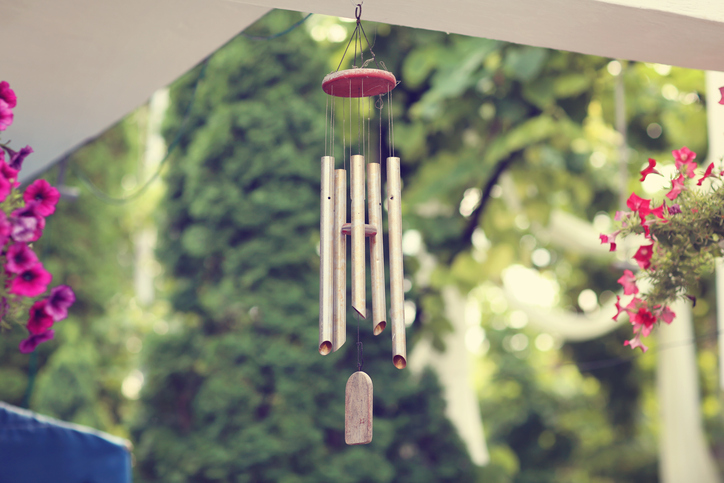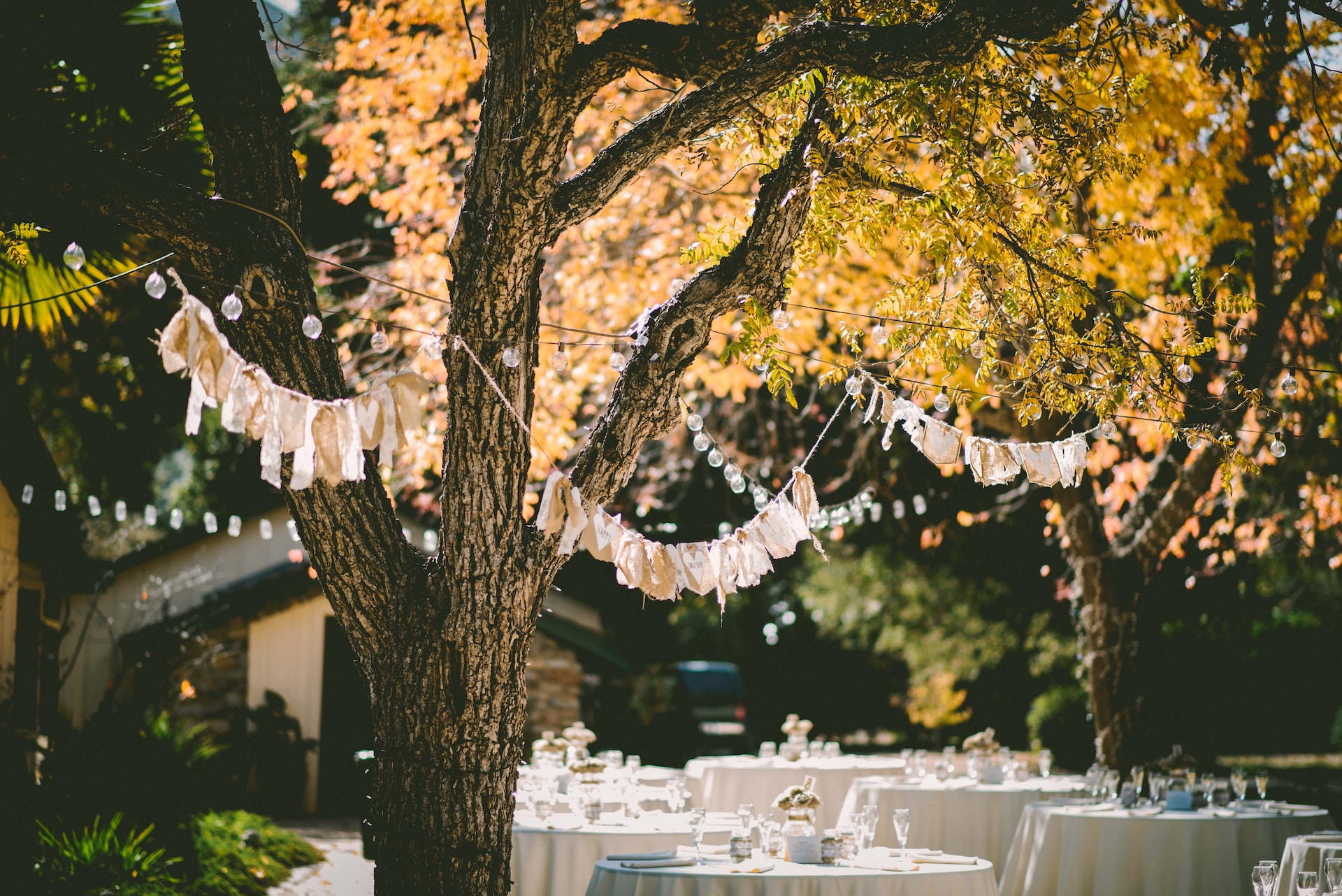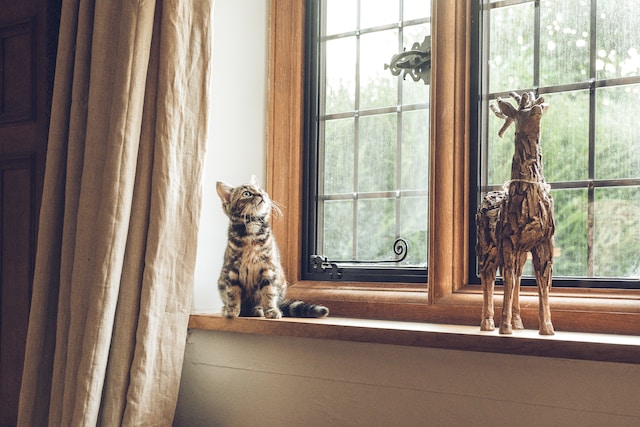What if you could improve your life and home while encouraging calm, peace, and prosperity? Sound good? Inviting the principles of Vastu Shastra into your home and your garden could help ensure a lifetime of radiant, positive, joyous energy.
What is Vastu Shastra?
An ancient, traditional Indian architectural science, Vastu Shastra is a guide for designing your home so that it enhances positive energy while reducing or eliminating negative energy. The more you surround yourself with positive energies, the more abundance you will attract.
According to Vastu Shastra, how your house is aligned can attract positivity and peace, or the opposite. The fundamentals of this science work to balance five natural elements, or energy sources: earth, air, sky, fire, and water, to help you achieve positive life goals and ensure peace, success, and health for your family.
How does this happen? The guidelines center around your home’s design, layout, measurements, and geometrical coordinates. Once those are aligned, you can create the aura you’re desiring: peace and harmony.
If you’re designing and building a home and align architecture and spatial orientation with Vastu guidelines, you could banish negative energies from entering the home, according to this traditional Hindu practice. If you’re already living in a home, there are some things you can do to re-arrange and align according to Vastu guidelines, giving your home a “Vastu touch.”
Some of the principles of Vastu may not be possible, since many of us now live in apartment complexes or condos, but there are some things we can do to attract positive energy into our living spaces. Vastu is translated as “dwelling,” and shastra is believed to translate to “teaching.”
Benefits
When you put the Vastu touch on your home, you’ll invite positive energy and happiness into your space. Every room in your house has specific importance, orientation, and use for energy balance. Using Vastu guidance, you can align decorations and furnishings so there is harmony with the universal, natural elements that produce energy.
One of the guiding tenets of Vastu spells out that for each amount of positive energy in this universe, there is an equal, corresponding negative energy. The goal of Vastu is to keep negative energies from entering your home.
Each of the five natural elements (energy) has significance in Hindu tradition and also has a dominant direction.
- Earth (Prithvi) dominates the center and diagonal directions of each corner and is synonymous with stability and patience. Prithvi is the Sanskrit name for Earth and also is a Hindu goddess.
- Air (Vayu) brings fun and happiness to life, and its dominating direction is East. Vayu, the Sandskrit word for air, is also a primary Hindu deity and the lord of the winds.
- Water (Jal) is the energy of immunity, spirituality, and health. It’s one of the biggest supporting elements of human life and it dominates the North.
- Space (Akasha) is responsible for cognitive energy, mental space, and expansion and is responsible for social energies. Space dominates the West.
- Fire (Agni) is the energy of money, power, confidence, and success and dominates the South.
When you can boost and balance these energies in your home, it benefits you and everyone who lives there.
Vastu for Your Home and Life
Though you may not be able to pick up your house and move it to realign it according to direction, there are easy ways to bring Vastu into your home.
For instance, you can create good energy at your front door, the gateway to the flow of positivity. Make sure you have no obstructions in front of the door and ensure it’s a strong wooden door with no rusty hardware or peeling paint. You can also grow citrus fruit trees at the entrance (perhaps in a pot) to invite good health and energy into your home.
Vastu Tips for Financial Prosperity At Home
You can attract financial prosperity to your home and life by following some of these time-honored Vastu guidelines. Money is intertwined with harmony, abundance, and social status, so attracting more money is important for many people. The Indian culture identifies money as a form of the goddess Lakshmi.
Placing a money box (or jewelry box) aligned with Vastu guidelines helps keep money flowing in. Your cash-box must be positioned close to the Southwest or Southern wall of a room so that it opens to the North. It is believed that when the cash box door keeps opening to the North, the lord of wealth, Kuber (who resides in a northern direction), refills the cash box.
Make sure you repair leaking faucets or other plumbing to avoid financial losses, according to Vastu tradition. Keeping a good airflow in your house also leads to a better flow of wealth, according to Vastu, and wind chimes at entrances can invite more cash flow. You can also keep a flute in the house to ward off financial issues.
Vastu Tips for Good Health
Want better health? According to Vastu Shastra, there are things you can do to attract good energy and good health. One of the Vastu guides for sound slumber is to sleep with your head toward the South or West. Also, don’t place mirrors on walls opposite to the bed. Mirrors that reflect a sleeping person can create a drain of energy or cause problems, including sickness.
Also, you can invite a free flow of energy in your house by leaving the center of the living space empty, or with light furnishings only.
Pay heed to the fire element, because an imbalance can cause sickness in your home, according to Vastu tradition. To achieve balance, light a candle, a diya lamp, or fireplace in the Southeast or Northwest direction of the house. If someone in the home does become sick, keep a candle burning in the room to help the person recover more quickly, Vastu tradition advises.
Another health guide of Vastu is to make certain that your bathroom energy and kitchen energy don’t mix up, keep them at opposite sides of the house, and if they’re opposite, close doors to the kitchen and bathroom. When you’re drinking water, face toward the Northeast or East.
Those living in a Vastu home also keep a picture of Lord Hanuman (the protector of health) with the picture facing toward the south of the house.
Vastu Tips for Improving Family Relationships
We have some Vastu tips for improving your relationship with family members, too. Tradition says to bring happiness, place joyous pictures of your family in the Northeast part of your home. Don’t hang any violent images in your home, as this attracts negative energy.
If any relationships are hitting rough spots, try putting a white sandalwood statue in a clear view, to be seen multiple times a day. This, according to Hindu tradition, will ease tensions and attract more harmonious relationships.
If male family members are having a dispute, try bringing a small branch of Kadamba tree into your home to ease tensions. If the dispute is among female members of your family, tradition states, those people should not wear red clothes at the same time or red attire to the same event or occasion.
Vastu also suggests hanging a wind chime with crystals in the bedroom to minimize any troubles or fights.
Vastu Shastra Tips Room by Room
In keeping a Vastu home, you can go from room to room and make some changes to attract more of the positive elements while reducing negative energy.
Bedroom
Your bedroom is your haven for rest. If possible, locate your bedroom in the South, Southwest, or West directions. If you’re an elder of the house, do not sleep in the Northwest-corner bedroom, as tradition says this can influence health or money issues.
The Northeast corner bedroom isn’t ideal, either, and Vastu recommends it also not be used as the main room. Vastu encourages no bedrooms at East or North directions, either. A Southwest direction is considered the best location for a bedroom, bringing good health, peace, optimism, and well-being.
Once you have the optimum directional location (if possible), decorate to your style. To bring positive energy for body and mind, use bright colors and earthy shades on bedroom walls (pinks, greens, grays, chocolate, or dark blue shades but not white, yellow or black colors). Keep bedrooms free of clutter to optimize positive energy.
Additional Vastu tips for your bedroom include keeping the door mostly open to channel positive energy into the room and positioning the bed in the Southwest corner of the room. Vastu tradition calls for couples to use a single mattress on the bed, with the wife sleeping on the left side of the bed.
If you hang a mirror in your bedroom, make sure it doesn’t reflect your bed or anyone in it, which according to tradition can result in domestic arguments or fights.
Living Room
Your living room is an important part of the home because it’s open to a lot of different energies. Family members and guests bring in varied energies, which can be both positive and negative. When entertaining, Vastu suggests, the host should face to the North or to the East, and have guests sitting opposite of the host. So, when arranging your living room furniture, keep this in mind. Electronics should face south, which is the direction of fire, to encourage positive energy flow.
Ideally, if a home’s main entrance faces East or North, the living room should be on the Northeast side of your home. If the home faces West, the living room should be on the Northwest side of the house. For a home whose entrance faces South, the living room should be located in the Southeast direction.
Vastu calls for an uncluttered living room with soothing-sounding wind chimes hanging from the windows to fight negative energy. Paintings showing water, rivers or fish, or an aquarium with healthy fish, can invite luck and positive energy.
Arrange heavy furniture like sofas along the Southwest corner of your living room for optimum positive energy flow.
Kitchen
If you can, Vastu guidelines suggest positioning your kitchen in the Southwest corner or Northwest corner of your home in honor of Agni, the lord of fire. Burners and stoves should face South.
Other Vastu kitchen tips include locating the drinking water on the northeast side. Vastu also suggests that homeowners position the kitchen as far away from the bedroom as possible because of the mingling of different energies.
Garden
You can practice the spatial arrangement traditions of Vastu in your garden, too. The courtyard holds significance and should be the center point of your house (if you are building one). It should be kept clean and free of obstructions. Try to build your courtyard floor of concrete, pebbles or marble, and decorate it with planters of basil and other herbs.
Vastu Shastra encourages growing plants considered prosperous and pleasing. These plants include coconut, basil, jasmine, sandalwood, saffron, pineapple, bakul, pomegranate, frangipani (plumeria), lemon, mango, and almond.
General Vastu guidelines for your garden include creating a tranquil, peaceful garden of healthy and well-maintained plants. It’s considered prosperous to plant jasmine on both sides of your pathway. Keep your garden looking clean and provide a pot of water for thirsty birds to create good karma.
In your Vastu garden, don’t plant cactus and other thorny plants because they’re considered to weaken and cause tension in relationships. Don’t bring bonsai plants into your garden because they’re synonymous with stunted growth. Clear all dead plants and leaves from the garden.
Invite Peace and Harmony into your Home
Making these changes to your home can result in a more positive vibe in your house, according to the cherished traditions of Vastu Shastra. Balancing the five energies of earth, water, air, space, and fire can result in a more cheerful, prosperous, and joyous energy in your home and in your life.




